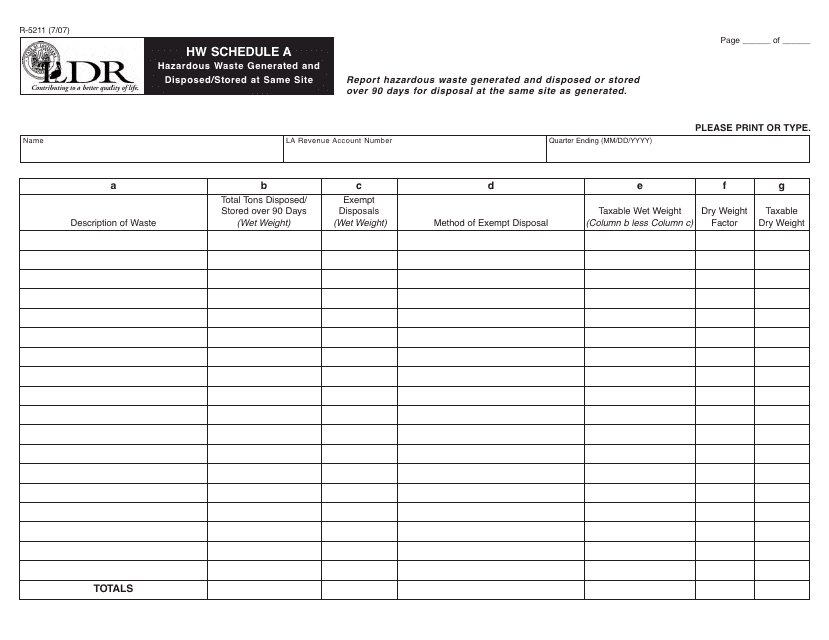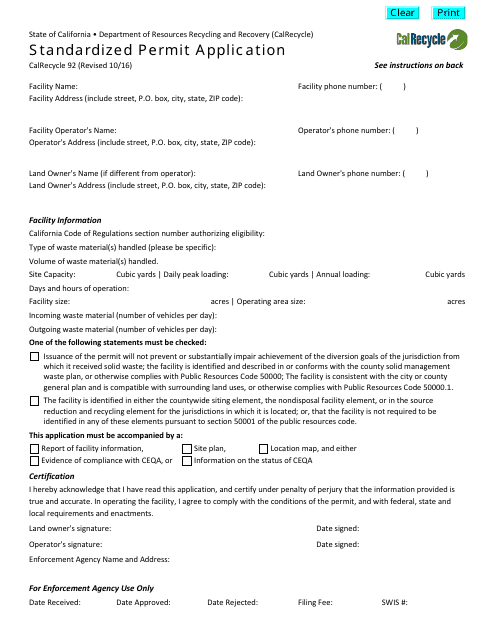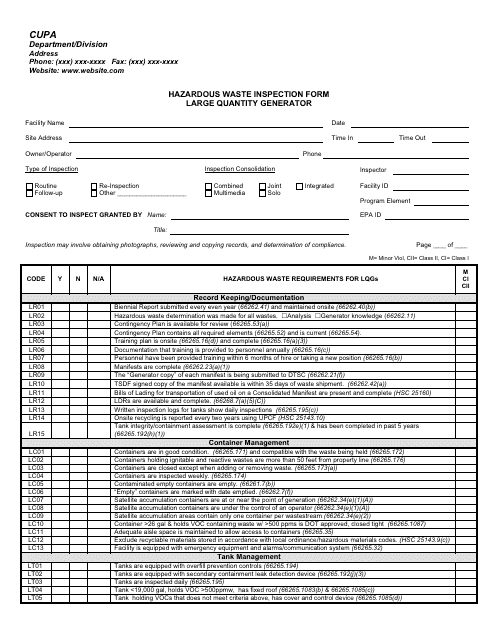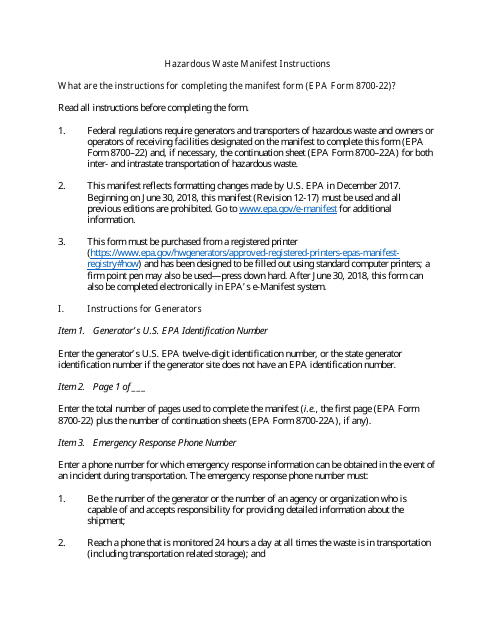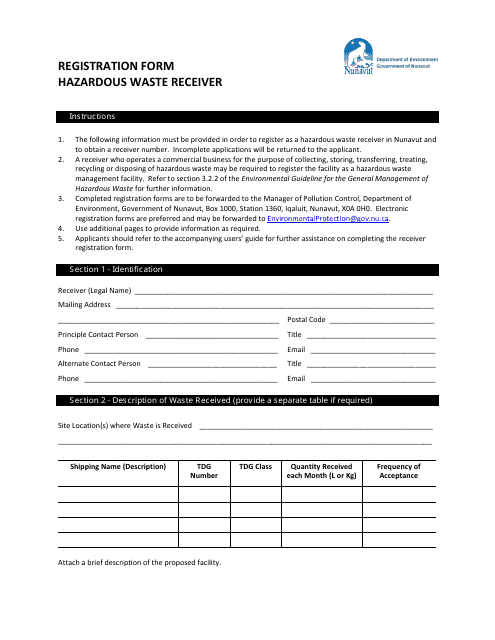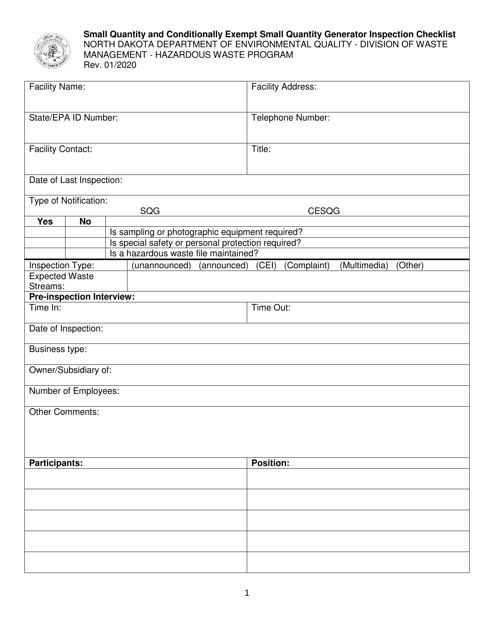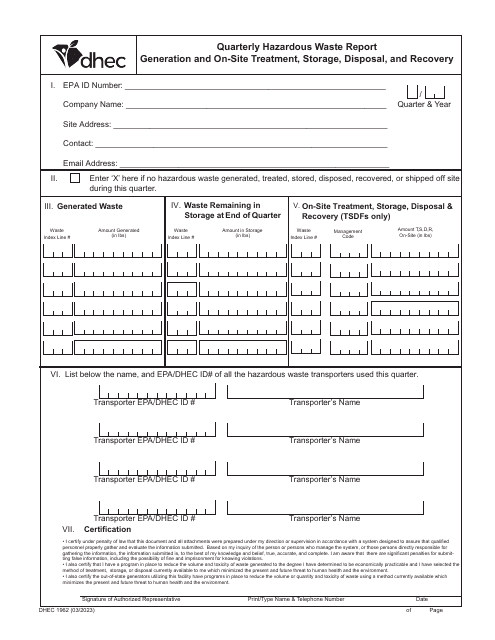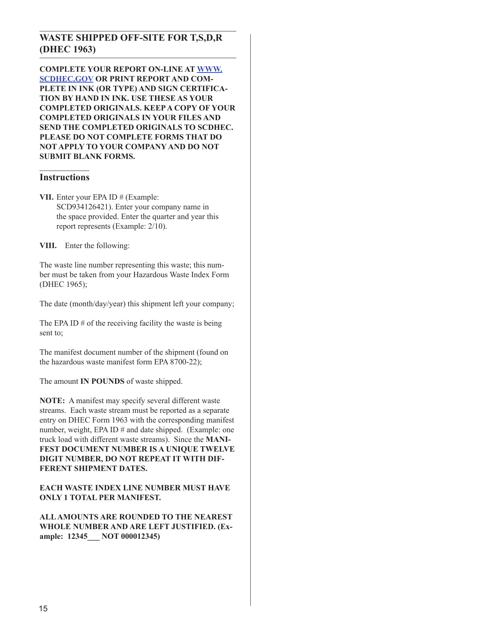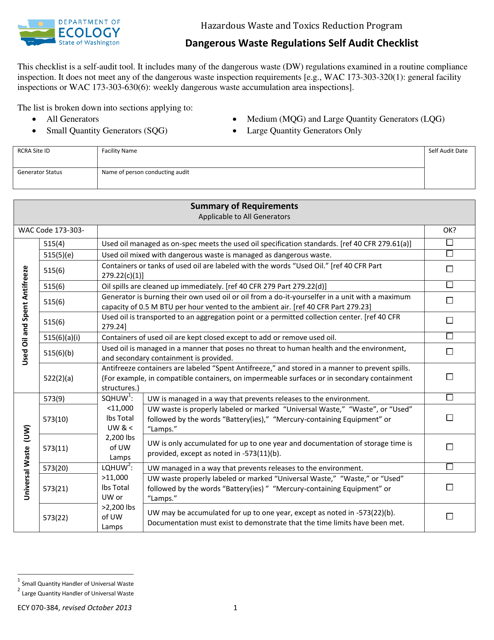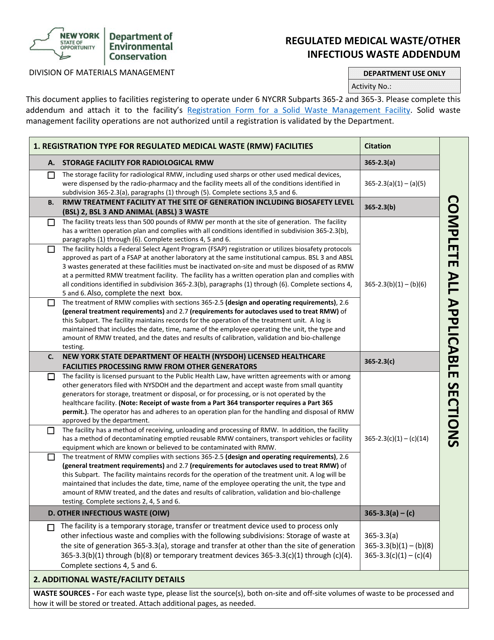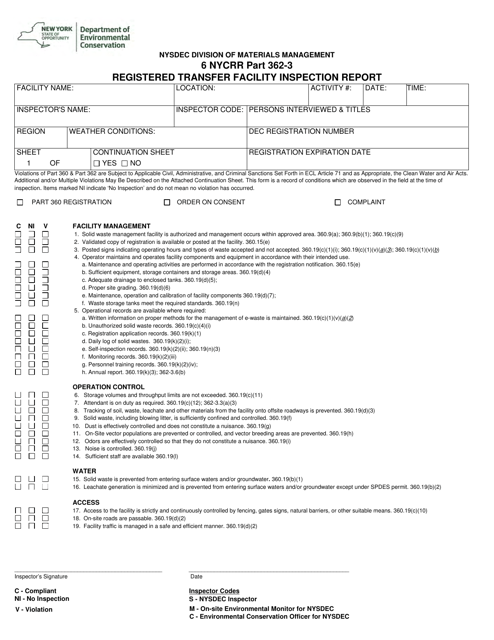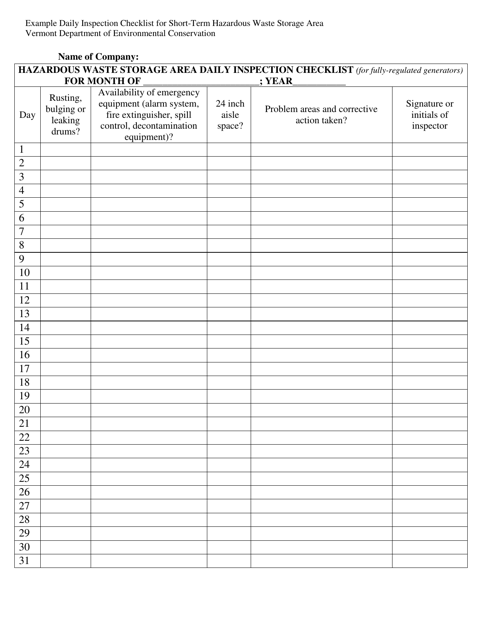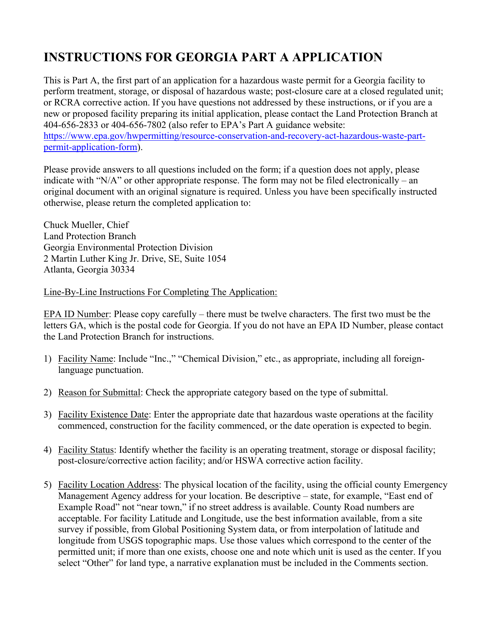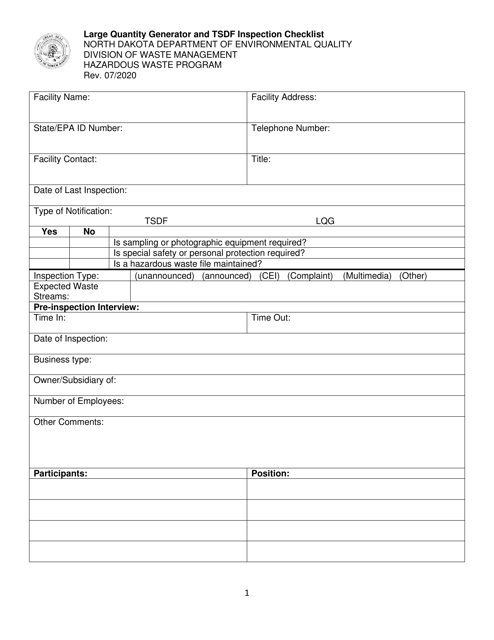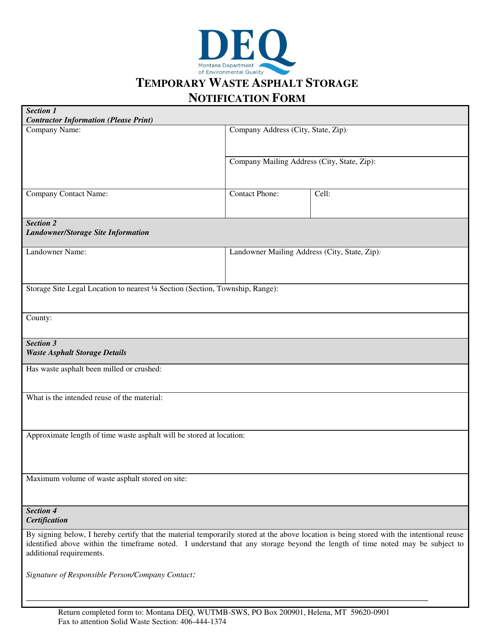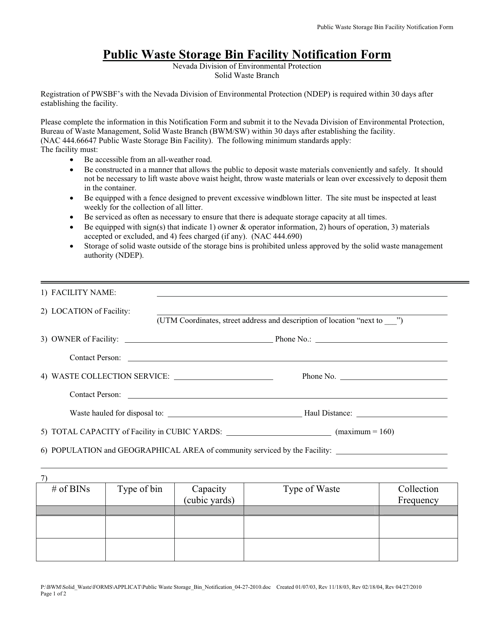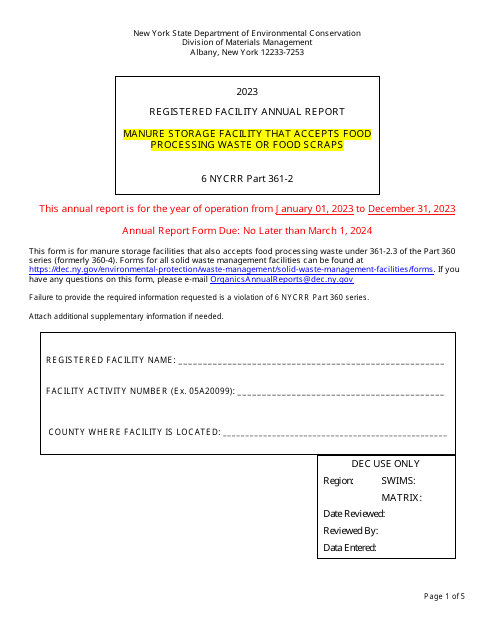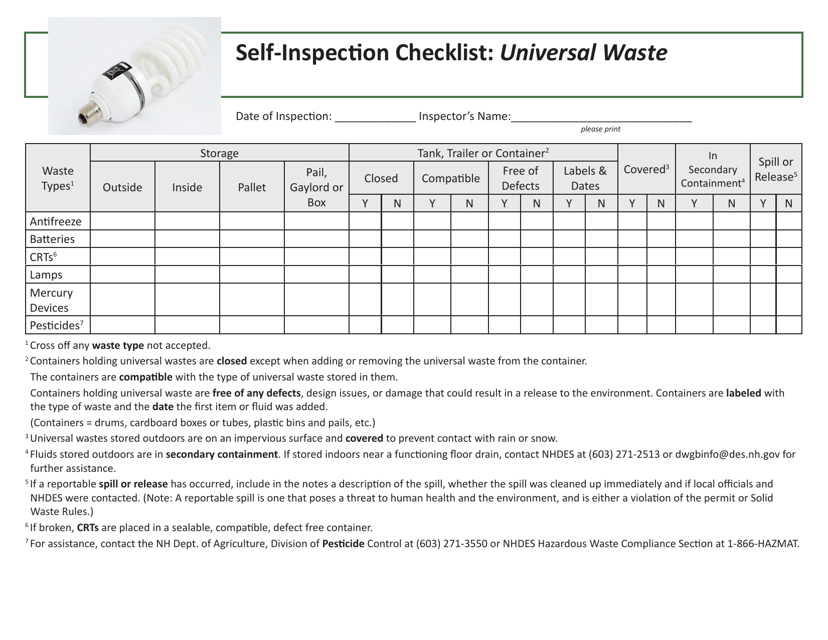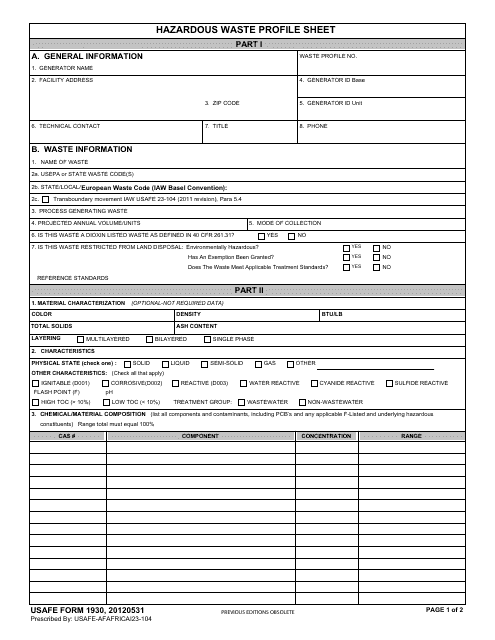Waste Storage Templates
At waste storage, we understand the importance of proper waste management to protect the environment and ensure public safety. Our collection of documents provides valuable resources and guidelines for managing and containing waste effectively.
Our documents cover a wide range of waste storage related topics, including permit applications, manifest instructions, hazardous waste reports, transfer facility inspection reports, and generator and facility inspection checklists. Whether you are a waste generator, transporter, or storage facility, our documents can help you navigate the complex regulations and requirements in various states across the country.
Our waste storage documents are designed to assist you in complying with state-specific regulations and guidelines. From the standardized permit application in California to the quarterly hazardous waste report in South Carolina, we have resources to meet your specific needs. Our collection also includes inspection reports from New York and North Dakota, providing valuable insights and checklists to ensure compliance and safety at your waste storage facility.
Trust our waste storage documents to provide you with the necessary information and guidance to properly manage and store waste. Safeguard the environment and protect public health by utilizing our collection of documents. With waste storage documents, you can ensure that your waste management practices are in line with industry standards and regulatory requirements. .
Documents:
19
This form is used for reporting hazardous waste that is generated and either disposed or stored at the same site in Louisiana.
This form is used for submitting a standardized permit application in California, specifically for waste management activities. It helps ensure compliance with environmental regulations and is required for certain industries.
This form is used for conducting inspections of hazardous waste disposal sites by large quantity generators in California.
This form is used for reporting and tracking hazardous waste transportation.
This form is used for registering as a hazardous waste receiver in Nunavut, Canada.
Small Quantity and Conditionally Exempt Small Quantity Generator Inspection Checklist - North Dakota
This form is used for reporting the quarterly shipment of hazardous waste for treatment, storage, disposal, or recovery in South Carolina. It provides instructions on how to accurately complete the DHEC Form 1963.
This form is used for conducting a self-audit of dangerous waste regulations in the state of Washington. It helps businesses ensure compliance with the regulations and identify any potential violations.
This document is an addendum specific to New York that provides additional guidance and regulations for handling regulated medical waste and other infectious waste. It outlines the procedures and requirements for proper disposal and containment to prevent the spread of infections and protect public health.
This document is a report used for inspecting registered transfer facilities in New York. It provides information about the condition and compliance of these facilities.
This daily inspection checklist is used for monitoring and ensuring compliance with safety regulations in short-term hazardous waste storage areas in Vermont. It helps to identify any potential hazards or issues that may arise.
This Form is used for obtaining a hazardous waste permit in the state of Georgia, United States.
This document is used for conducting inspections of large quantity generators and treatment, storage, and disposal facilities (TSDFs) in North Dakota. It provides a checklist to ensure compliance with regulations and proper waste management practices.
This form is used for notifying the state of Montana about temporary waste asphalt storage.
This form is used for notifying the public about a waste storage bin facility in Nevada.
This document is a self-inspection checklist for universal waste management in the state of New Hampshire. It provides guidelines for ensuring compliance with regulations regarding the management of universal waste.
This form is used for providing information about hazardous waste, such as its composition and handling procedures.

